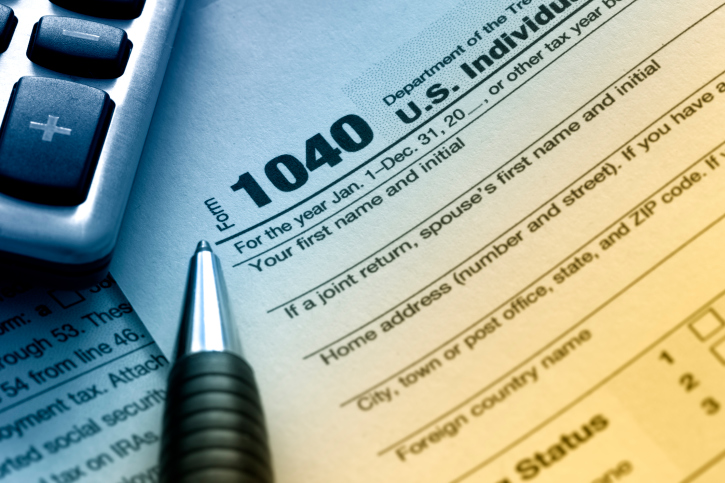3 Huge Mortgage Mistakes Made by First-time Home Buyers – and How to Avoid Them
 As a first-time home buyer, you may actively be seeking out information about your upcoming purchase. Buying a home is a huge financial move to make, and it can impact your financial situation and even your lifestyle for many years to come. While it is important to learn more about what to look for in a home, it is also important to learn about mistakes home buyers have made. When you learn more about mortgage mistakes that others have made, you can take steps to prevent making those same mistakes yourself.
As a first-time home buyer, you may actively be seeking out information about your upcoming purchase. Buying a home is a huge financial move to make, and it can impact your financial situation and even your lifestyle for many years to come. While it is important to learn more about what to look for in a home, it is also important to learn about mistakes home buyers have made. When you learn more about mortgage mistakes that others have made, you can take steps to prevent making those same mistakes yourself.
Committing To A Large Mortgage Payment
Many first-time home buyers contact a mortgage professional to determine what the largest loan amount and monthly payment they qualify for is. However, just because you qualify for a loan amount and monthly payment from a lending perspective does not mean that it is affordable for your budget. After all, you may have a more expensive lifestyle, childcare expenses and other expenses that are not factored into the lending equation.
Not Reviewing All Home Expenses
When you own a home, you will be required to pay for expenses that are not in place when you rent a home. For example, you will have to pay for lawn care, home maintenance tools and supplies, repair bills, homeowners’ association dues and more. It is important to allow room in your budget for all of the expenses related to home ownership to ensure that your new home is affordable for you.
Failing To Inquire About Closing Costs
Your mortgage representative is required to disclose all loan charges and fees to you early on in the loan process, but some first-time home buyers do not take the time to thoroughly review or understand these fees. Many are unfortunately surprised by the amount of money they must come to the closing table with at the end of the loan process, and this can be avoided by simply asking questions and reviewing the preliminary loan statement up-front.
Each of these home mortgage mistakes can be costly to a first-time home buyer, but they also are all entirely avoidable. As you begin your loan process and proceed through it to closing, keep these mistakes in mind. Be sure to ask your loan consultant for more information if you have any questions. You can begin the loan process today by contacting a loan consultant directly.
 After you have completed the initial loan application and have signed the preliminary loan disclosures, your mortgage loan application will generally receive a preliminary prequalification. This prequalification will be based in large part on your ability to provide documentation to support your statements on your loan application, including your stated income and assets. Typically, a lender will include a request for least the last two to three years of your income tax returns with this documentation. There are several reasons why a lender may need to review your tax returns and why you should provide requested documentation as soon it is requested.
After you have completed the initial loan application and have signed the preliminary loan disclosures, your mortgage loan application will generally receive a preliminary prequalification. This prequalification will be based in large part on your ability to provide documentation to support your statements on your loan application, including your stated income and assets. Typically, a lender will include a request for least the last two to three years of your income tax returns with this documentation. There are several reasons why a lender may need to review your tax returns and why you should provide requested documentation as soon it is requested. Many seniors are looking for a great way to improve their financial situation. Retirement or semi-retirement can be difficult due to the need to live on a fixed income. Some may have been unable to save enough in their working years, or their accounts may have been hit hard by stock market fluctuations. Still others are feeling the effects of inflation and the rising costs of medical care and general living expenses. If you are like many other seniors, you may not have a huge cash reserve available in your bank account, but you may have a sizable nest egg in your home. The fact is that you can tap into that equity without selling your home or taking on a mortgage payment when you apply for a reverse mortgage.
Many seniors are looking for a great way to improve their financial situation. Retirement or semi-retirement can be difficult due to the need to live on a fixed income. Some may have been unable to save enough in their working years, or their accounts may have been hit hard by stock market fluctuations. Still others are feeling the effects of inflation and the rising costs of medical care and general living expenses. If you are like many other seniors, you may not have a huge cash reserve available in your bank account, but you may have a sizable nest egg in your home. The fact is that you can tap into that equity without selling your home or taking on a mortgage payment when you apply for a reverse mortgage.